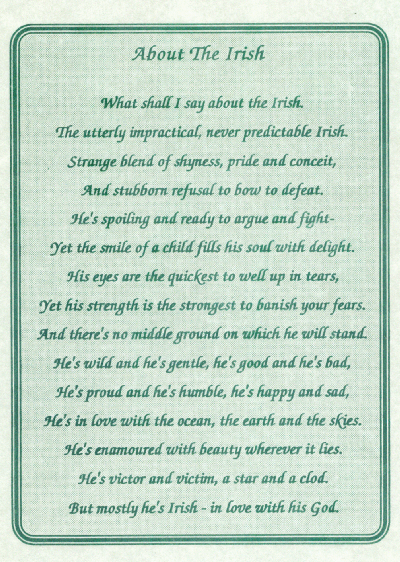Originally produced under the titles Harlem Nights and Coonskin No More..., Coonskin encountered extreme controversy before its original theatrical release when the Congress of Racial Equality strongly criticized the content as being racist, although none of the group's members had seen the film. When the film was finally released, Bryanston gave it limited distribution and initially received negative reviews. Later re-released under the titles Bustin' Out and Street Fight, Coonskin has since been reappraised, with many considering it to be one of Bakshi's finest works.
In the South, Sampson and the local Preacherman plan to bust out their friend Randy from prison. As they rush to the prison, the two are stopped by a roadblock and wind up in a shootout with the police. Meanwhile, Randy and another cellmate named Pappy manage to escape from inside the prison and wait for Sampson and the Preacherman to help them get out. While waiting for them, Randy unwillingly listens to Pappy tell a story about three guys that resemble and Randy and his friends. Pappy's story is told in animation set against live-action background photos and footage.
Rabbit's final targets are the Godfather who lives in the subway with his wife and gay sons. The contract for killing Rabbit is given to his only straight son Sonny. Showing up outside Rabbit's nightclub in blackface and clothing representative of minstrel show stereotypes, Sonny winds up shot multiple times by Rabbit before dying in an explosion caused by a car crash. His body is cremated and taken back home, where his mother weeps over his ashes. Bear becomes torn between staying with Rabbit, or starting a new, crime-free life. Bear decides to look for Fox in order to seek his advice. Upon arriving at Fox's newly acquired brothel, Bear is "married" to a girl he, Fox, and Rabbit met during the fight with Savior's men. Under the advisement of Fox, Bear becomes a boxer for the Mafia. During one of Bear's fights, Rabbit sets up a melting imitation of himself made out of tar. As the Mafiosos take turns stabbing at the "tar rabbit", they become stuck together. Rabbit, Bear, Fox and the opponent boxer rush out of the boxing arena as it blows up. The live-action story ends with Randy and Pappy escaping from the prison while being shot at by various white cops, but managing to make it out alive.
These experiences had a strong impact on Bakshi, and led him to develop Harlem Nights, a satirical film loosely based upon the Uncle Remus storybooks. During the production of Heavy Traffic, filmmaker Ralph Bakshi met and developed an instant friendship with producer Albert S. Ruddy during a screening of The Godfather, and pitched Harlem Nights to Ruddy. When Steve Krantz, the producer of both Heavy Traffic and Bakshi's debut feature, Fritz the Cat, learned that Bakshi would work with Ruddy, Krantz locked Bakshi out of the studio. After two weeks, Krantz asked Bakshi back to finish the picture. In 1973, production of Harlem Nights began, with Paramount Pictures (where Bakshi once worked as the head of its cartoon studio) originally attached to distribute the film. Bakshi hired several black animators to work on Harlem Nights, including graffiti artists, at a time when black animators were not widely employed by major animation studios. Production concluded in the same year.

we miss you poems

we miss you poems.

More Scraps

Other apps you may like

I\x26#39;ve Earned My Wings

Posted in quotes

We miss you Father and always

If you want you can make a

We Miss You

God knows just what we need.

Clarke. we hope you enjoy

Image Provided By: SeekCodes

Maybe it is not you\x26#39;re

I miss you quotes and poems

Donna Schmitz (R.I.P. Mom We

I miss you Jess, very much
In the South, Sampson and the local Preacherman plan to bust out their friend Randy from prison. As they rush to the prison, the two are stopped by a roadblock and wind up in a shootout with the police. Meanwhile, Randy and another cellmate named Pappy manage to escape from inside the prison and wait for Sampson and the Preacherman to help them get out. While waiting for them, Randy unwillingly listens to Pappy tell a story about three guys that resemble and Randy and his friends. Pappy's story is told in animation set against live-action background photos and footage.
Rabbit's final targets are the Godfather who lives in the subway with his wife and gay sons. The contract for killing Rabbit is given to his only straight son Sonny. Showing up outside Rabbit's nightclub in blackface and clothing representative of minstrel show stereotypes, Sonny winds up shot multiple times by Rabbit before dying in an explosion caused by a car crash. His body is cremated and taken back home, where his mother weeps over his ashes. Bear becomes torn between staying with Rabbit, or starting a new, crime-free life. Bear decides to look for Fox in order to seek his advice. Upon arriving at Fox's newly acquired brothel, Bear is "married" to a girl he, Fox, and Rabbit met during the fight with Savior's men. Under the advisement of Fox, Bear becomes a boxer for the Mafia. During one of Bear's fights, Rabbit sets up a melting imitation of himself made out of tar. As the Mafiosos take turns stabbing at the "tar rabbit", they become stuck together. Rabbit, Bear, Fox and the opponent boxer rush out of the boxing arena as it blows up. The live-action story ends with Randy and Pappy escaping from the prison while being shot at by various white cops, but managing to make it out alive.
These experiences had a strong impact on Bakshi, and led him to develop Harlem Nights, a satirical film loosely based upon the Uncle Remus storybooks. During the production of Heavy Traffic, filmmaker Ralph Bakshi met and developed an instant friendship with producer Albert S. Ruddy during a screening of The Godfather, and pitched Harlem Nights to Ruddy. When Steve Krantz, the producer of both Heavy Traffic and Bakshi's debut feature, Fritz the Cat, learned that Bakshi would work with Ruddy, Krantz locked Bakshi out of the studio. After two weeks, Krantz asked Bakshi back to finish the picture. In 1973, production of Harlem Nights began, with Paramount Pictures (where Bakshi once worked as the head of its cartoon studio) originally attached to distribute the film. Bakshi hired several black animators to work on Harlem Nights, including graffiti artists, at a time when black animators were not widely employed by major animation studios. Production concluded in the same year.

we miss you poems

we miss you poems.

More Scraps

Other apps you may like

I\x26#39;ve Earned My Wings

Posted in quotes

We miss you Father and always

If you want you can make a

We Miss You

God knows just what we need.

Clarke. we hope you enjoy

Image Provided By: SeekCodes

Maybe it is not you\x26#39;re

I miss you quotes and poems

Donna Schmitz (R.I.P. Mom We

I miss you Jess, very much
No comments:
Post a Comment